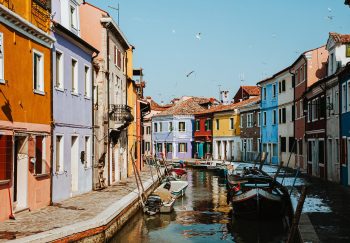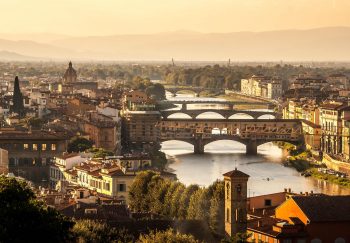It is important to consider travel safety before you go on any trip. Italy is generally safe to visit. However, it is important to be aware of common travel scams once you are there.
You don’t have to worry that your Italy trip will be less enjoyable if you take travel safety precautions. These things are not too difficult to do, and you won’t even notice that you’re taking any precautions.
Travel insurance
Travel insurance is something that many people do not need. Some people don’t buy it. My personal history is mixed. I have only purchased travel insurance for Italy after I had spent at least a week there (in the case of medical problems). It’s possible to do your own research about the benefits of travel insurance. I believe it’s very affordable and gives you some peace of mind. It’s free to get a quote.
If you plan to engage in any kind of adventure sport or activity (skiing/hang gliding/rock climbing), travel insurance is a smart idea. If you have paid upfront for cruises or tours that could be cancelled, you should check your insurance policy to see if you will get a refund for cancellations, weather-related or otherwise.
Safety Tips in Italy
Pickpockets and petty theft are not uncommon in large Italian cities. However, they are just as dangerous as big cities anywhere else in the world. Because there are so many tourists, this is partly why they’re easy targets.
It’s easy to forget about your wallet when you’re traveling in unfamiliar areas. It is easy to be swept away by the magnificent view and forget to close your purse. It is easy to get into the bad habit of keeping your wallet in your back pocket. When I travel, my thought process is that someone will always look like an easy mark in the crowd. Your job is to ensure it isn’t you.
These are some safety tips to help you travel safely in Italy
- Don’t advertise your wealth. If you leave the hotel with a Rolex and expensive baubles on your arm, it’s a sign that you’re a thief. Don’t show that you are worth the money.
- Always be aware of what is going on around you, especially when you are in a foreign country. If you feel bad about a place, get out. If you aren’t sure where “bad neighborhoods” might lie, ask the tourist information office for a map.
- Pay attention in busy places and when you’re on public transport. Pickpockets are common in these areas. It’s easy to believe that you will feel someone reaching for your wallet. It won’t be there until it’s gone.
- Don’t make your purse easy to reach. At the very minimum, ensure that your bag is not on the street’s shoulder. This will make it difficult for passing thieves on scooters to grab your bag while you’re driving.
- Keep your wallet in your front pocket. I know this will feel strange for many of you but it is essential. Reduce the amount of stuff in your wallet and invest in a money clip.
- Have a money belt. . This will ensure that even if you have everything in your purse or wallet, they don’t get it all.
- Always use a purse hook. When I travel, I swear by purse hangers. A bag placed on the back of a chair in an outdoor cafe is a sign that you are inviting thieves.
Italy’s Tourist Scams
Although there are many travel scams, they aren’t nearly as common in Italy as in other countries. It pays to learn about scams before you travel and to remain skeptical of any offers that sound too good to be true.
Learn more about including details on common scams, and helpful photos.
What to do if something is stolen?
Even if you take every precaution, it’s possible to be the victim of theft. To make the aftermath of a theft less distressing, assume it will happen.
Make photocopies of your signature/photo page before you travel. Keep them in a different place than your actual passport. All that information is necessary to obtain an emergency replacement. A photocopy helps you get it done faster. You should also write down your emergency phone numbers on the backs of credit cards. You can’t dial the number on the back if the card is stolen.
Two credit cards are a good idea. One in your wallet and one in your money belt. You should also keep most of your cash in your moneybelt, rather than your wallet. This will ensure that you have cash in case your wallet is stolen.
You may have your credit card stolen.
- Your bank(s) should be contacted immediately. The cards have been cleverly photocopied or the phone numbers written on the back. This allows you to easily retrieve the information even if the card is lost. Many cards include a number that customers can call to have their card shipped from overseas.
- Call debit card banks first. It is much easier to dispute credit card charges than to make direct withdrawals from your bank accounts. Therefore, it is imperative to cancel all cards that are connected to your bank account.
- You can report the theft to the police. They might say they have no control over it or suggest that it is not a “police investigation” level offense. However, be persistent and bring a translator. You may need to file a police report if you are having problems with identity theft.
- To file a report on fraud, call one of the credit bureaus. They share information so you don’t have to call them all.
This article provides more information about what to do if you lose your wallet/purse (it doesn’t matter if you are at home or away).



